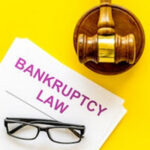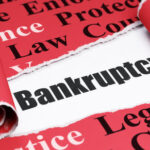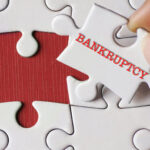Category Archives: Chapter 13 Bankruptcy

Is Chapter 13 Bankruptcy the Right Choice for You?
If you’ve been swallowed up by debt due to something like a divorce, job loss, or illness, you may feel stressed every time the phone rings or there’s a knock on the door, fearful it’s yet another debt collector demanding payment. When you’ve been bled dry and there’s not much else you can pay,… Read More »

Understanding How Florida Tax Certificates and Tax Deeds Work
If you own your home or other real estate in Florida, you know that you are required to property taxes each year. Property taxes are normally due on November 1. If they go unpaid, they are considered delinquent on April 1 of the following year. At that point, local tax collectors will conduct what… Read More »

Federal Appeals Court Ruling May Allow for Discharge of Some Types of Private Student Loans in Bankruptcy
Student loan debt presents a unique challenge if you are thinking about filing for bankruptcy. Most student loans are considered non-dischargeable in a Chapter 7 or Chapter 13 case. In other words, even if you successfully complete the bankruptcy process, you still have to pay back the student loans. The bankruptcy court can make… Read More »

The Impact of Florida’s Statute of Limitations on Your Creditors
If you have a stack of unpaid bills, you may think that bankruptcy is your only legal option for getting out of debt. This is not always the case. Depending on how old your debts are, they may actually no longer be enforceable under Florida law. Like all states, Florida imposes a statute of… Read More »

Will an Automatic Stay in Bankruptcy Stop the Sale of My House?
One of the key benefits of filing for bankruptcy is the automatic stay. This puts an immediate halt to any debt collection activity on the part of your creditors until the bankruptcy court has a chance to review your petition. This includes any foreclosure proceedings on your home or other real property. A stay… Read More »

What Happens to an Unexpired Lease If I File for Bankruptcy?
In a Chapter 13 bankruptcy, a debtor files a proposed plan of reorganization with the court. In plain terms, the debtor must explain how they will repay their creditors over a three- to five-year period. To assist in this, the court will appoint a Chapter 13 trustee, who acts as the legal representative of… Read More »

What Is a Chapter 13 Confirmation Hearing?
In a Chapter 13 bankruptcy case, a debtor is required to submit a repayment plan to the court. But submitting the plan is only the first step. The debtor’s creditors, as well as the trustee overseeing the bankruptcy estate, have the right to review the proposed plan and note any exceptions or objections with… Read More »

How Will Bankruptcy Affect My Credit Report?
A common question many people have about the bankruptcy process is the effect it will have on their credit report. The Bankruptcy Court itself has nothing to do with credit reports, which are maintained by private agencies. But federal law still governs how long these agencies can maintain a public record of your bankruptcy,… Read More »

New Chapter 13 Bankruptcy Rules In Effect
Bankruptcy is a complicated process. Many Florida residents think they can manage a Chapter 13 bankruptcy on their own. But there are a number of rules and forms involved, and if a debtor is not careful, they can sabotage their case right out of the gate. How New Amendments Help Creditors The Supreme Court… Read More »

What Happens If I Omit a Creditor from My Chapter 13 Bankruptcy Petition?
In any kind of bankruptcy case, it is critical to list all of your known debts on the appropriate schedules accompanying your Chapter 7 or Chapter 13 petition. As a matter of law, your creditors have the right to be notified of your bankruptcy case and to present a claim. If you omit a… Read More »

